***
We visit the village that was once on the other side of the river. The entire town was moved to here when their land became protected National Park. This village is called Tanjung Harapan, and the name of sounds like a melody, a short sweet song that rolls off the tongue.
It’s a tiny smattering of houses, most what we would consider derelict- most buildings here, we would probably be reluctant to raise our children in. Most roofs are constructed of hot, stuffy corrugated iron. Others are roofed with the traditional- but undoubtedly more expensive, given that they need to be replaced every two or three years- stitched palm fronds.
We come across a woman making roof panels- folding the older, longer palm fronds in half over a stiff stick, then using the younger, sharper palm fronds to stitch them in place. The woman sits cross-legged on her tiny, sheltered porch, her face serene and smooth like a rock washed over by a thousand waves. Ivend asks her if we can come closer to watch and she responds with a nod and a smile. May we take her photograph, we ask, and the request is translated. She nods her ascent, the same serene smile in place, as though she has seen a thousand tourists wander through her village in her time and nothing we wish to ogle at and photograph has the ability to surprise her any more.
And she probably has a thousand of us, maybe more. This tiny economy of this tiny village is subsidized by the tourists who come through Tanjung Pating. The tiny souvenir shop sells orangutans beautifully carved from ironwood; hats and mats woven from reeds; bracelets made from wooden beads and dried, plaited palm fronds.
The local economy is also subsidised by the same palm oil plantations that are now decimating the orang population. Their power was once provided by a giant, old fashioned water-wheel that revolved over and over, bucketing the water from a small canal into hydraulic energy.
Now, the electricity supply to Tanjung Harapan comes directly from the substation that belongs to the palm oil company.
A smiling man appears from a small, dark house and presents us with beautifully carved statues of orangutans, made with his own hands from solid ironwood. There are gorgeous and we all purchase one, with the maker’s name and the date it was made carved into the base.
“Where can I buy cigarettes?” I ask Ivend, and he replies “Up here. From my auntie”.
The shop is tiny and dark, and a woman dressed in a batik dress is sitting on the floor, playing with her children. With Ivend translating, I purchase two packets of Malboros.
“30 000 rupiah” Ivend translates. I hand over a 50 000 note and shake my head at the shopkeeper as she attempts to hand me change. She glances at Ivend in surprise, to confirm there’s been no misunderstanding, and he assures her there isn’t.
“Oh, terimah kasih!!”- “Oh, thank you!!” she cries, and throws her arms arund my neck, kissing me on the cheek.
20 000 rupiah is about two Australian dollars, and I feel myself break a bit inside. A sickening sense of my own over-privileged life. Of how much I take for granted. Of how very lucky- how spoiled- I actually am.
***
Emma and her mum Helen, the two other women in our group, have bought pencils and small clutching koala bears for the little ones in the village. Children are children, no matter where you go, and they swamp Emma and Helen, laughing and jumping around them as they receive their gifts.
We pile back onto the boat and there are a group of boys on the wharf beside us. There’s five or six of them, maybe eight or nine years old. They laugh at the tour leader and I as we pour water over our heads.
“Panang!” I cry out to them, laughing too. “Hot!”
The boys follow us up the river in a small canoe. They laugh in excitement as the wake of a speedboat rocks their canoe. The paddle it in circles with one oar, around and around. There is not a life jacket amongst them, not a parent in sight; and they show no fear.
Children are just children, no matter where you go.
***
The crew on our boat consists of a skipper, his two assistants, and a cook. The cook is an entirely beautiful woman with a lovely, warm smile. And her food is incredible- I find myself eating things I never thought I’d try; because it is all so fresh, so subtly spiced and carefully made.
The cook’s daughter is four years old and reminds me so much of my Bumpy thing, waiting for me at home, that it aches at my heart. Her name is Aya (A-YA) and she’s so well-behaved, in a way I can’t imagine my Bump ever being. But I can’t imagine bringing my Bump for three days on board a boat on the river, either- no life jacket, no stress. No misbehavior. Not a peep to be heard from her.
I ask Ivend how to say ‘beautiful’ in Bahasa, just so I can tell her “Aya- chanti!!”. She rewards me with a smile like the brightest of sunshine.
Children are children, no matter where they are.
***
There’s a peaceful, happy, teasing friendship now on the klotok- we’re comfortable with each other, things are running exceptionally smoothly.
We begin the journey back up-river toward Kumai, and late in the afternoon, we see the rarest of sights. There’s a big, male orang making his nighttime nest in a tree on the side of the river that’s not protected, not national park- the population of wild orangutans on that side of the river is unknown, but thought to be diminishing rapidly.
We pull the klotok to a stop and the orang watches us, watching him- we can just see his giant, cheek padded face peering over the top of his comfortable bed.
That night we have our dinner on board the boat again. The table is set, as always, with candles and wine glasses for our juice, and the food is delicious. It’s almost a full moon, with no cloud cover, which means the billions of fireflies that normally light up the river are, tonight, down to just a few hundred.
Not that it matters. I’ve never seen a firefly before and I’m enchanted by the tiny glowing sparks that look like Christmas tree lights in the dense tree cover. They flit in and around the boat, and Garry, the tour leader, catches one so I can observe it. It’s only half a centimeter long and it’s bum, tucked in under it’s dark wings, blinks and glows a bright, neon yellow.
These people- especially Erin, my American roommate- they’re my friends now.
We eat a glorious dinner, with laughter and good conversation, amongst a hundred flickering fireflies; under the swollen, fat bright light of the waxing, luminous moon.







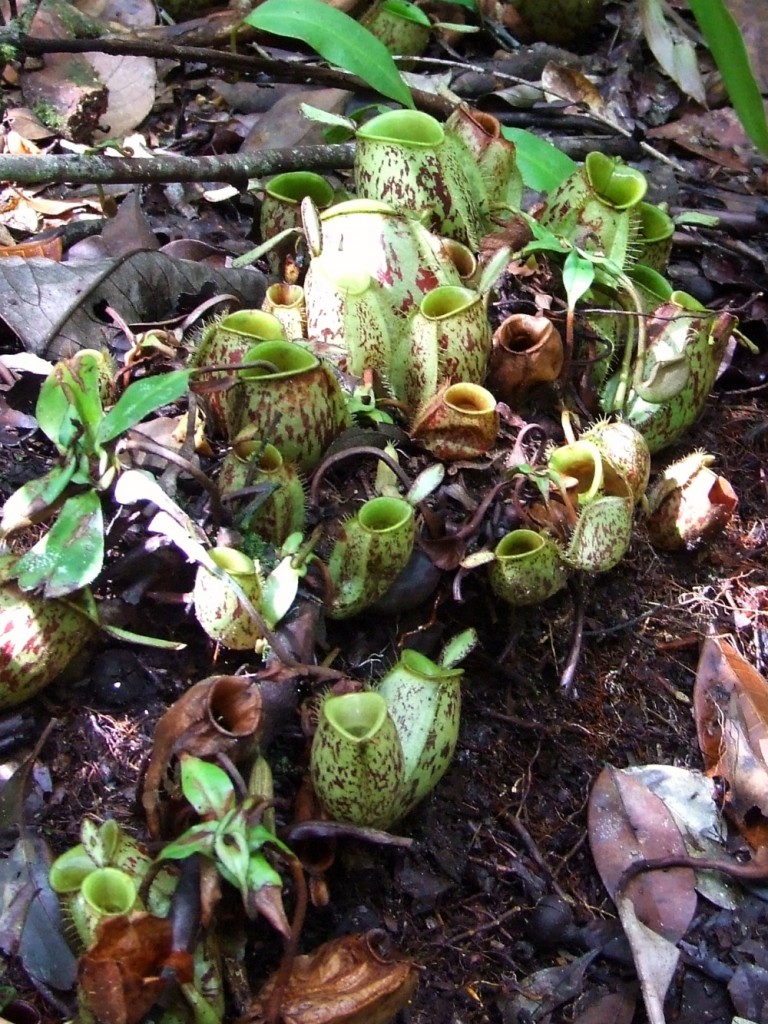
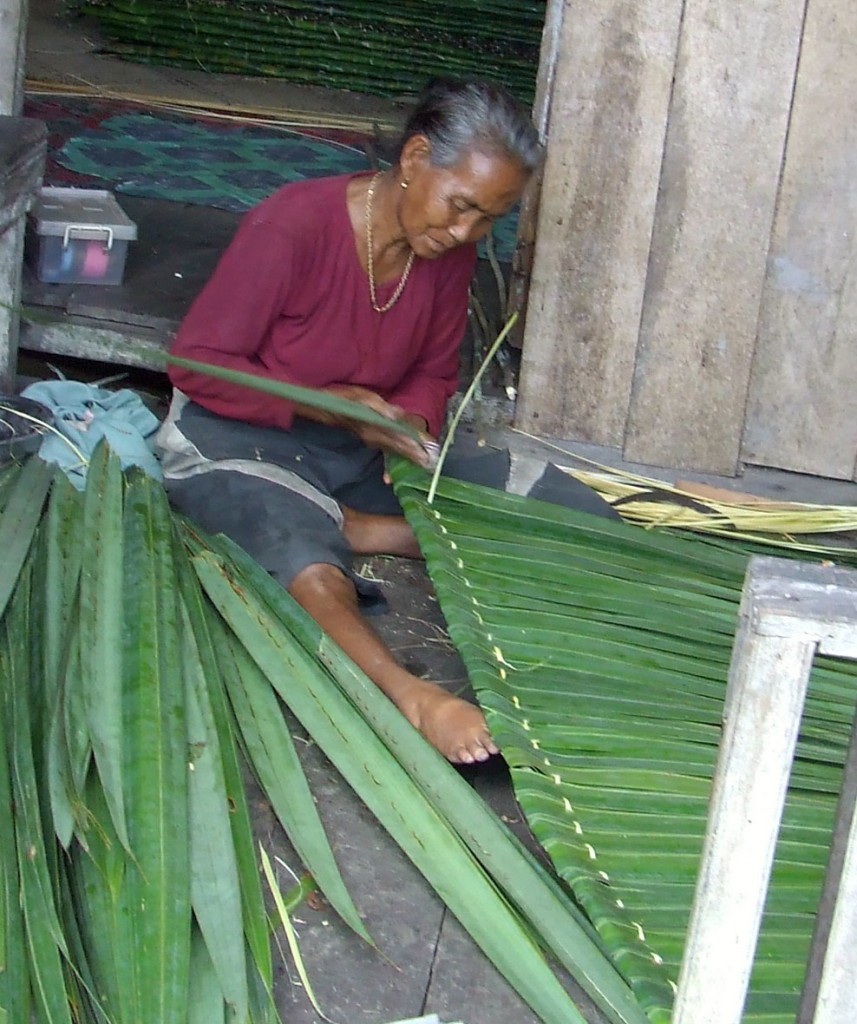
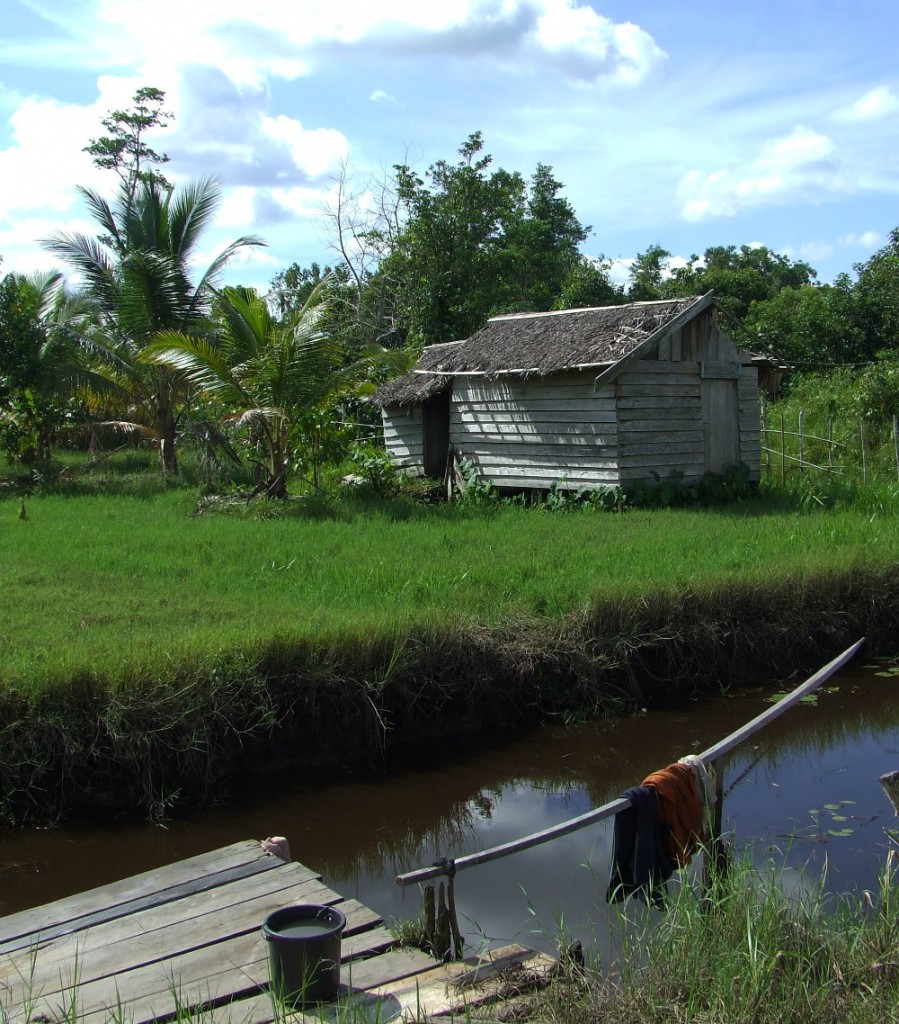

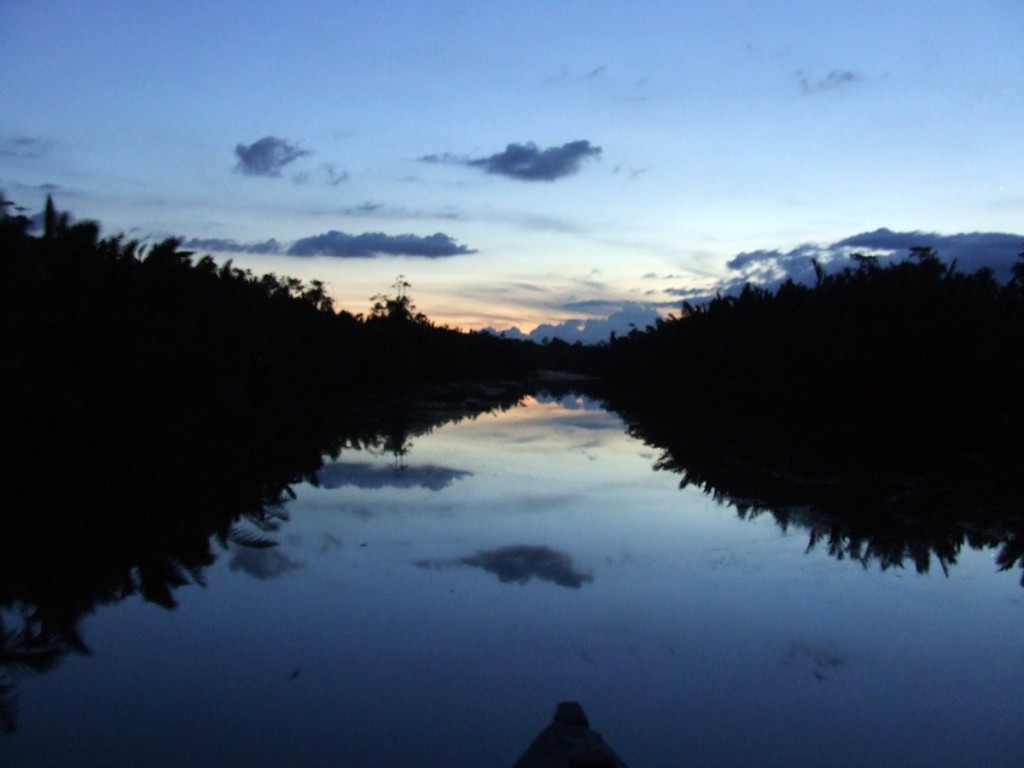
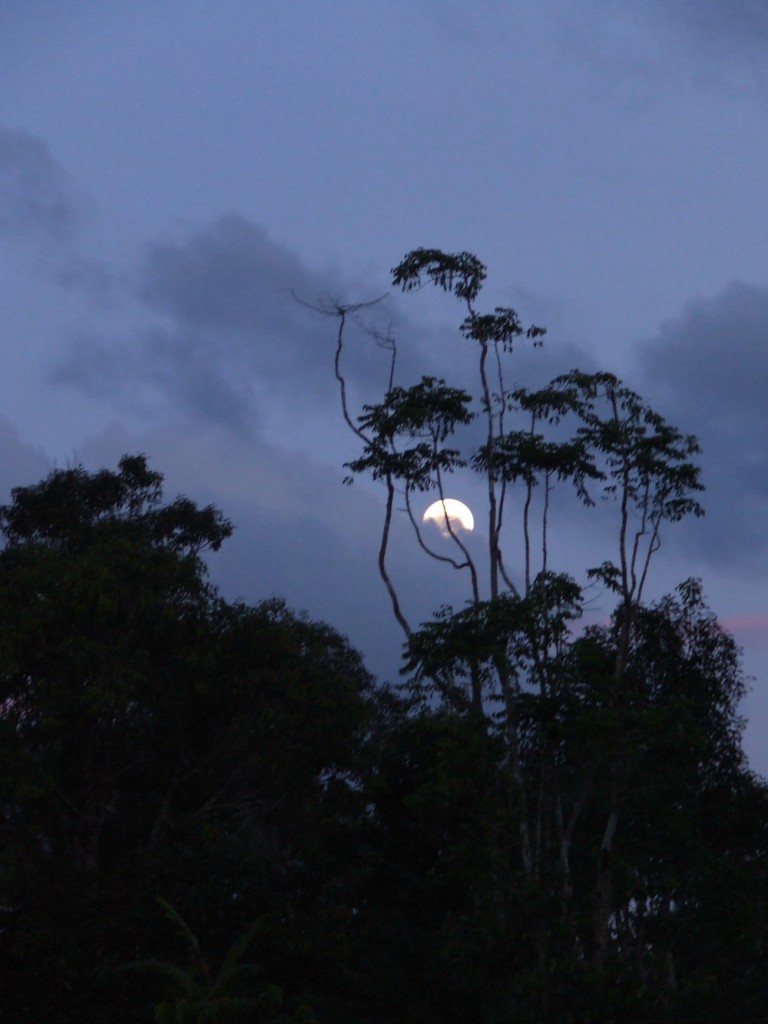















{ 6 comments… read them below or add one }
What an amazing trip

Vanessa recently posted…Your Life, Your Choice, Your Path
It sounds like a n incredible experience.
Trish recently posted…Stepping out of my comfort zone, Naturally – RedBalloon review
I just want to give you wild hugs, for being brave and saying yes to this trip, for making friends! It sounds cathartic and amazing.
Magic.
Oh Lori, what a wonderful time you are having. You know, I am so pleased that you are eating all that delicious food. Fireflies are amazing – the only time I’ve seen them was in Chicago, and I felt like I was on Sesame Street. Keep enjoying yourself!
Oh Lori, this is so beautiful , your words are amazing , it paints a perfect picture of our wonderful trip , it was so nice to share it with you , I can’t wait to show my
Mum , she is really looking forward to reading it
and reliving such a special journey
Emma x